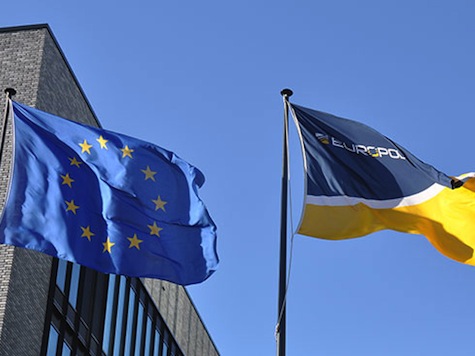UK’s fierce debate about the European Union is often misunderstood across the Atlantic. It has unfortunately become a tradition of the US foreign policy to view the EU as synonymous with ‘strong’ Europe.
So much so that a couple of years ago, President Obama visited Britain and declared the US wanted Britain to remain in the EU – an intervention remembered here without much warmth. Yet he is hardly original in seeing the Union, as opposed to the nation-states of Europe, as a better and more reliable ally of the US against various enemies from radical Islamists to Putin’s Russia.
In fact, the reverse is true. Thus, recent revelations strongly suggest that at least one of the EU institutions have been sharing sensitive data with Russia and undermining NATO defences. Symbolically, the story is directly relevant to the British debate about the EU threat to old-fashioned things such as national sovereignty and our ancient constitutional liberties.
By December 1st this year, the UK government is preparing to irrevocably sign-up to a range of EU ‘Police and Criminal Justice Measures’ that will remove further historic freedoms from the British people. One of them is known as Europol, the EU’s criminal intelligence agency, cheerfully described as the future FBI of the United States of Europe – or gloomily, as a KGB of the emerging EUSSR.
In a recent interview, the head of Europol’s ‘Cybercrime Center’ Troels Oerting has revealed that most of the world’s organised cyber-crime is controlled by a narrow circle of people from Russia; but he is “increasingly happy” about Europol’s “cooperation” with Russian “law enforcement authorities” on this issue. He added that he had recently visited Moscow “a couple of times” and agreed to give them details of some “four very interesting cases” to investigate.
The EU’s policing cooperation with Russia is manifestly counter-productive, as it is virtually impossible to distinguish between Russian organised crime and the so-called Russian ‘law enforcement agencies.’ To all intents and purposes they are one and the same. The British Government and security services knows full well that Russia is a gangster state, and that it murders people on British soil; most notably my constituent Alexander Litvinenko in December 2006.
‘Cooperation’ with Russia on cybercrime looks even madder if you consider recent revelations by internet security experts (iSIGHT and, independently, FireEye) about massive Russian “cyber-espionage campaigns” against NATO and against Western governments. It is obvious that such a campaign may only be state-sponsored. Indeed, there is a long history of professional and well-coordinated cyber-attacks on dissident web-sites in Russia as well as against government servers in Estonia, Georgia, Poland and Ukraine, on such occasions when Moscow turned particularly hostile to each of those countries.
We are now facing a real threat of Russian subversion, if not a military invasion, against one or more NATO members such as the Baltic states. There is little doubt that any such actions would be accompanied by a massive cyber-attack on NATO computers. Rather than working to protect us from that threat, it appears that the Europol is revealing sensitive details of our defences to the enemy.
It is surely the utmost folly to share sensitive information with Europol if Europol in turn may share that information with the very criminals it is supposed to fight. This scandal is another illustration that, far from protecting our ‘freedom, security and justice’, Europol, and other EU policing institutions, are a major threat to all three.
Europol is an unaccountable and very secretive organization. Europol officers enjoy immunity from legal action, and even their names (with the exception of the Director and his deputies) are kept secret. It is only on rare occasions that we learn sketchy but alarming details of its activities, such as the involvement in the tragic killing of Jean Charles de Menezes in 2005, its monitoring of political ‘radicals’ across the EU, and now its irresponsible ‘cooperation’ with the Russian gangster state.
We simply don’t know what else Europol may be doing with the information entrusted to it by our police. It may be that it shares other sensitive data with the Russian regime – whose sponsorship of international organised crime goes far beyond cybercrime. It may be that it ‘cooperation’ with Russia extends to surveillance of political ‘extremists,’ and thus to strengthening Putin’s reign of terror. We simply don’t know. All we know is that Europol cannot be trusted even to keep a secret.
I have now raised the issue in the European Parliament this week, and written to the UK Home Secretary to draw her attention to this scandal, which reinforces my view that the government’s intention to seek a further ‘opt in’ the Europol and other EU policing institutions is a profound mistake, and one that may have far-reaching and unforeseen consequences. I once again urged the government to use its legal right under the Lisbon treaty to withdraw from Europol before the end of this year. The pressure to do so is now mounting from many political quarters, and the government has recently dropped hints that it may be prepared to give in. If so, better late than never.
Other Western nations, both inside and outside the EU, should also consider their position. Europol has cooperation agreements with many non-EU countries, including the United States, envisaging exchange of operational data and even classified personal data of citizens. It is far from certain that such information is safe in the hands of Europol.
Gerard Batten is a Member of the European Parliament for London and a member of the UK Independence Party (UKIP). He serves on the European Parliament’s Civil Liberties, Justice & Home Affairs Committee.

COMMENTS
Please let us know if you're having issues with commenting.